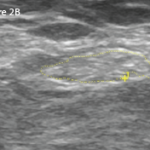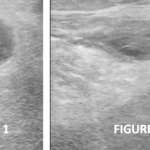New research that labels roughly one in three total knee arthroplasties (TKA) in the U.S. as “inappropriate” highlights the need for more “contemporary and consensus-based” patient-selection criteria.
Published in Arthritis & Rheumatology, the data showed 34% of TKA patients fell into an “inappropriate” category, based on a modified version of appropriateness criteria developed and validated in the late 1990s in Spain.1,2 Some 42% of patient surgeries were classified as “appropriate,” while 22% were dubbed “inconclusive.”
More than 600,000 knee replacements are performed annually in the U.S. Between 1990 and 2010, there was a doubling of per capita utilization of knee replacement, says study lead author Daniel Riddle, PhD, department of physical therapy at Virginia Commonwealth University in Richmond.
“This is a function of a variety of factors, and one of the factors that has been proposed in some high-profile publications, is that utilization may be excessive in some cases,” says Dr. Riddle. “Of course, with that said, we’re seeing an aging of the population, and we’re seeing the number of obese patients increase, which argues for a more contemporary, consensus-based approach to what the criteria for this procedure should be.”
Dr. Riddle says that a subgroup of patients studied had no joint-space narrowing, or had very mild pain or functional loss, when compared to a typical TKA patient.
“The take-home message here is that there is a subgroup in this country who are receiving the procedure and fall into one or both of those categories,” he says. “One could argue fairly strongly that those may not be the best patients for this procedure.”
In the absence of clear guidelines, Dr. Riddle suggests rheumatologists consider using standardized measures of self-reported pain and functional status when trying to determine whether a patient needs knee-replacement surgery.
For example, rheumatologists could “have patients fill out a form that takes five minutes to complete, take a look at the score, and compare it to large sample studies of patient outcomes to get a sense of how much benefit a patient will get on average,” Dr. Riddle explains. That “could be very useful for rheumatologists and patients, to further discuss potential benefits and whether patients will be satisfied with that kind of predictive outcome.” (posted 8/15/14)
Richard Quinn is a freelance author in New Jersey.
References
- Riddle DL, Jiranek WA, Hayes CW. Use of a validated algorithm to judge the appropriateness of total knee arthroplasty in the United States: A multicenter longitudinal cohort study. 2014. Arthritis Rheum. Jul 28; doi: 10.1002/art.38685. [ePub ahead of print].
- Escobar A, Garcia Perez L, Herrera-Espineira C, et al. Total knee replacement; minimal clinically important differences and responders. Osteoarthritis Cartilage. 2013;21(2):2006–2012.


